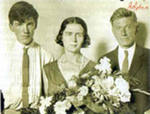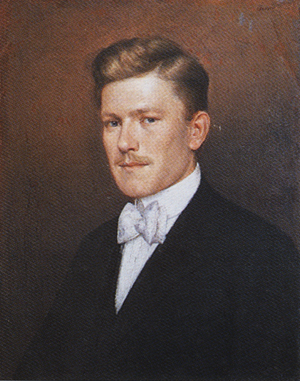The year 2015 marked the 100th anniversary of Sviatoslav Richter’s birth. Richter’s native city did not let the moment pass by. All over Odessa, TV specials, exhibits, concerts, and lectures were held. Even Bruno Monsaingeon – the legendary creator of the classic documentary “Richter Unconquered” and author of the book “Richter. Dialogues. Diaries.” graced the city with his presence for the occasion. However, in times past, Odessans had to travel all the way to the Moldovan capital of Chisinau to hear Richter – as it was common knowledge that he would never appear in Odessa. This certainty was a result of the crisis of that era, a striving to annihilate anything that was not Russian – and especially everything that was German – which came in the wake of the German advance during WWII. Sviatoslav Richter’s own father was executed for being a German. Still, despite his understandably obstinate oath to “never” return, Richter always maintained a sincere attachment to his city – the city where he grew up, studied, and first became a musician.
In Odessa, he was acclaimed not only as the organist at the Old Kirche, but also as a teacher at the conservatory and a solo performer.
Theophilus Richter was a dyed-in-the-wool German – German and French was spoken more often in his home than Russian. In Odessa, he was acclaimed not only as the organist at the Old Kirche, but also as a teacher at the conservatory and a solo performer. While his admirers saw his genius, the new Soviet professors had quite a strong distaste for him – going as far as legitimate persecution. Richter was surrounded by scandal and rumors which led to him eventually being forced to resign from his position at the conservatory. He continued to play at the Kirche and give private lessons – the German ambassador’s son being one of his many pupils.

Sviatoslav Richter recalls his father with devoted affection – especially understandable since his father was his very first teacher. Prior to World War II, German colleges were not uncommon in Odessa, and Richter graduated from one of these institutions. Although much of the younger Richter’s genius came about owing to his impeccable ear, phenomenal memory and charismatic personality, the pianist himself recounts that from the age of 10 he began reading voraciously. He would maintain this passion for reading for the rest of his life. While at first Gogol and Maeterlinck held his devotion, Marcel Proust would eventually assume the top position in Richter’s pantheon of authors.
Prokofiev was forever dissatisfied with the quality of his own performances, which is why he personally forbade the release of many of his records.
Richter’s playing has been described in writing as such: “…the first note alone caused one’s heart to flutter – something deeply real was contained therein”. I can confirm this description personally, as I had the fortune to be present at two of his Kyiv concerts. Still, despite Richter’s worldwide fame, its roots still lead us back to Odessa where his maturation took place – as musician, virtuoso, and inspired interpreter of many composers.
One of the composers whose work he frequently interpreted was Sergey Prokofiev (whose own 125th birthday is being celebrated as this issue goes to print), who, much like Shostakovich became a victim of the “1948 Ordinance” which prohibited the reproduction of his works. Despite the ban, Richter took upon himself the task of conducting Prokofiev’s Concert Symphony! To add to the pointedness of the gesture, he conducted despite recently having his finger broken in a fight. In his spare time, Richter was also an Alpinist – one must admit that both of these details paint him as quite the outstanding personality. He remembered every person he ever met, knew all the sheet music he had played by heart, and could tell stories of how Prokofiev was capable of waving goodbye…with his foot.

He also made daily logs in his “music diaries”, where he scrupulously detailed who played what work and how it sounded. Prokofiev was forever dissatisfied with the quality of his own performances, which is why he personally forbade the release of many of his records.
When asked to name three people who most influenced him as a person, Richter lists his father, Heinrich Neuhaus, and Richard Wagner.




































